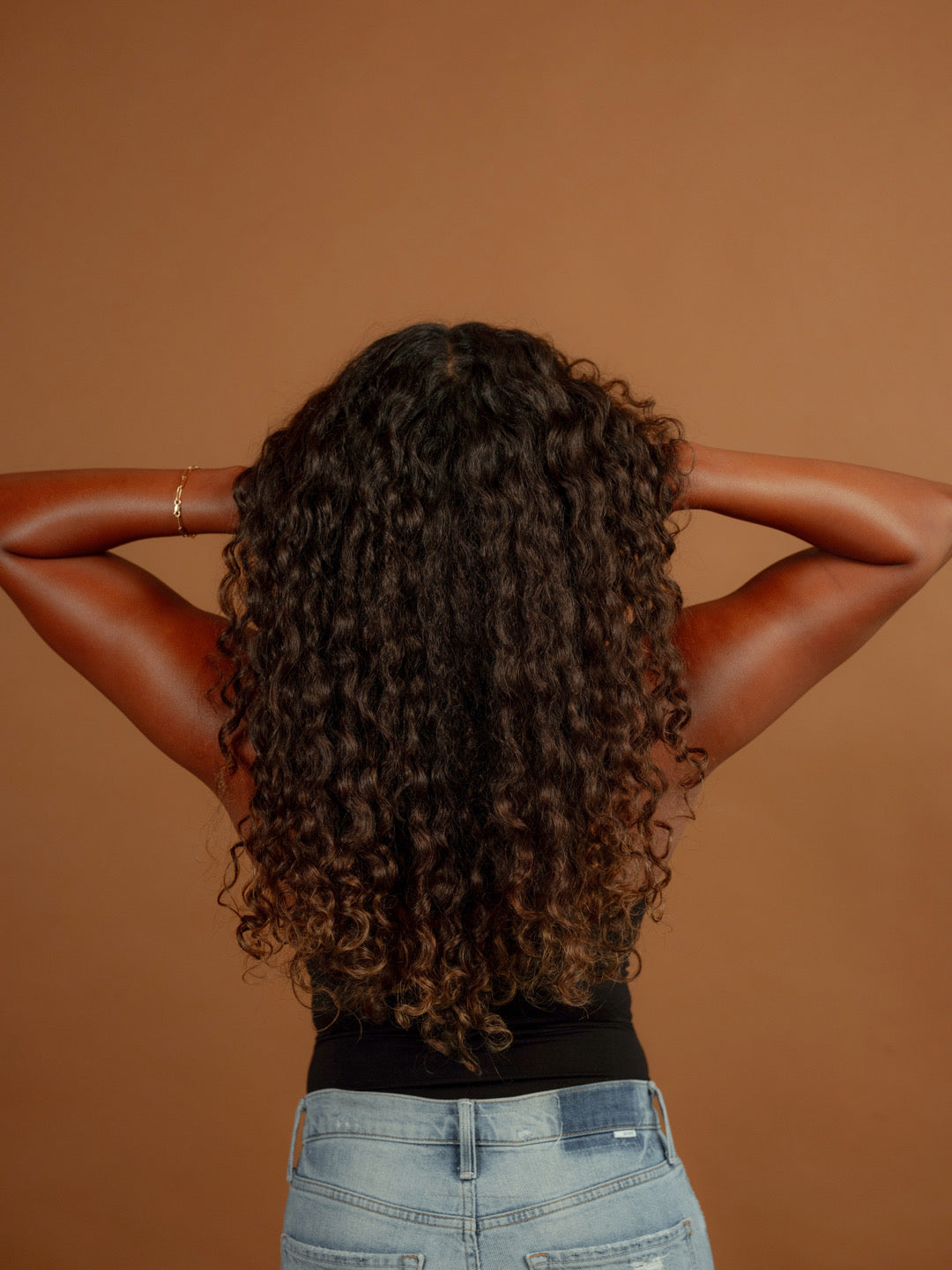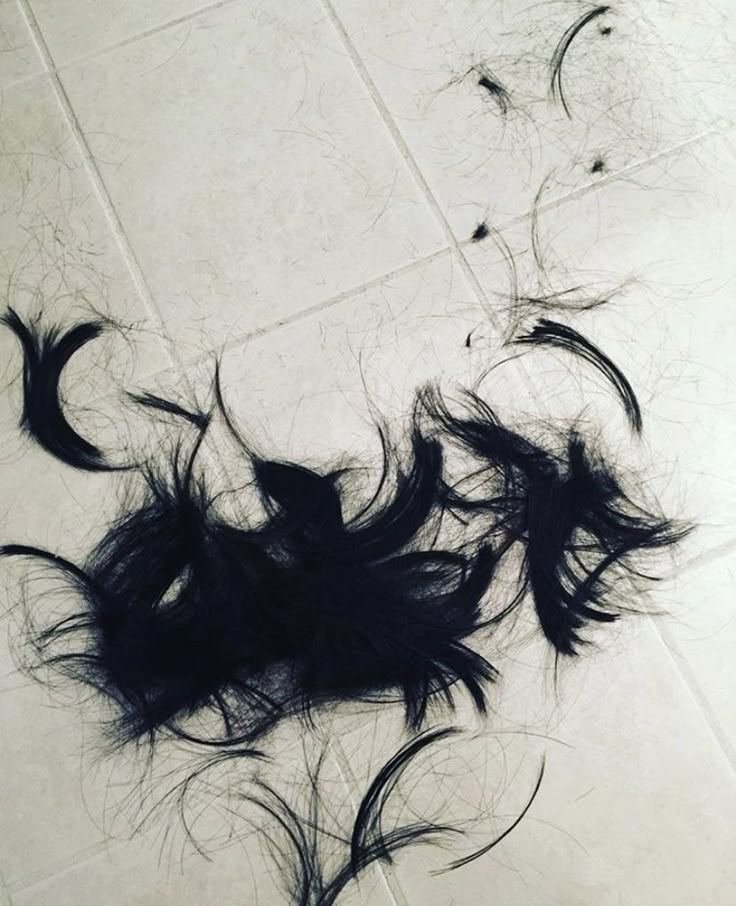We live in an age of false promises, filters, selfies, comparisons, and branding. It’s a LOT, and hard to know where to turn or what to buy when it comes to hair growth.
“Use this conditioner and your hair will grow.”
“Take this pill and you’ll have hair again.”
“Drink this collagen and you’ll have better hair, skin and nails.”
It’s not like flipping a switch and the light goes on. I wish. Trust me, it would have saved me a ton of money if I had known this before.
I was that person who would take pictures of my hair and compare it to the week before, or who would lean into the mirror to see if I saw any new hair sprouting.
I was the person who measured their part line and didn't want to wash my hair in the shower because the shedding would devastate me.
I was the person who calculated how much hair was in my brush and left in the shower. The person who looked into the shampoo bowl at the salon to see how much hair had fallen out. The person who hated people combing their hair for fear of more loss and the person who would run my fingers through my hair sitting on the couch and count how many hairs came out in total dread.
I really do get it. I wouldn’t care this much if I didn’t understand firsthand the feeling of vulnerability, like there’s nowhere to turn. And I’m IN the hair industry. So after all my professional research and personal seeking, I want to share everything that it’s important to know about how your hair grows and why results take time.
How long does it take to see hair growth results?
I’m wary of anyone or any product that makes a claim with certainty, because what we know about hair growth is that it’s not a straight answer. It’s a series of trial and error, a process of trying several things consistently.
So let’s learn about how hair grows and why it takes a few months to see any results once you’ve begun a new regimen. Yes, a few months, and that’s depending on YOUR consistency and dedication to the WHOLE process (key word is YOU).
To use analogies:
- Getting the body in shape isn’t just about going to the gym or a trainer once or twice at random. It’s about a consistent, holistic routine. Not just lifting weights, but also nutrition and self care. And it isn’t that you reach your goal and then you can stop and expect it to remain intact. It’s about continuing good habits for life.
- Facials, sunblock, serums and a good skincare routine doesn’t guarantee you’ll never have wrinkles, but it can reduce premature and unnecessary skin aging. It’s all in hopes of being preventative.
My friends, same with scalp care. So let’s start at the basics: the cycles of hair growth. Because if you understand how your hair grows and what triggers its interruption and fallout, you’ll understand why the process takes TIME.
The Hair Growth Cycle Explained
Your hair grows in phases: Normal hair follicles undergo periods of growth (Anagen) followed by regression (Catagen), resting (Telogen), and evacuation (Exogen), followed by regenesis (“new” Anagen). No hair, therefore, grows continuously.
Let’s zoom in closer to the 3 main stages:
Anagen (Growing) Stage
This is the growing period of a follicle, and it typically lasts about 3 to 5 years! During Anagen, your hair grows around 1-1.5 cm per month, and faster in summer than in winter.
Catagen (Intermediate) Stage
After Anagen, your hair enters the Catagen phase, a transitional stage of hair growth when follicles prepare themselves for the resting phase. About 3% of all hairs are in this phase at any given time.
During the Catagen phase, your hair follicles start to shrink, growth stalls, and the outer root sheath shrinks and attaches to the root of the hair. This is the formation of what’s called a club hair, and it lasts about 1-2 weeks.
Telogen (Resting or Shedding) Stage
Finally, each hair is released and falls out. The Telogen phase is the resting and shedding period of the hair cycle, when the follicle becomes inactive for 3-4 months (that’s why we say wait 3-4 months to see if any system is working for you).
At the end of this period, older hairs that have finished their life will fall out and newer hairs will begin to grow.
When the Cycle Gets Disrupted
Hair loss, hair thinning and problems with hair growth happen when this growth cycle gets interrupted. This can be triggered by conditions like nutritional and medical situations, illness, pregnancy, and stress. (Did someone say Covid, or the last few years, or really anything these days?)
For instance, 2-3 months after surgery or stress, you can experience hair loss. This occurs because the trauma can cause the growing stage (Anagen) to stall while hairs are also entering the falling (Telogen) stage at the same time.
I know for me, if I ever have surgery or have been under anesthesia, around 2-3 months later I’ll have increased hair fall (and really dry, brittle hair). Anesthesia shows up in our hair, skin, and nails, but that’s for a different blog post.
Always, but especially during these times, it’s a good idea to be proactive with scalp health, using growth-supporting treatments like daily follicle drops and a weekly scalp mask.
Takeaways
When you get down to it, there’s no magic wand for hair growth. Like other aspects of health, scalp care requires a multifaceted approach and deep attention over time. The hair cycles in months, not days or weeks, but months, and it’s a process. A WHOLE process, on the inside and the outside.
So be patient, be consistent, be realistic, let go of the results, and be willing to put in the work on your scalp care. Your hair is your garden; it will grow.
Warmly,
Nina



